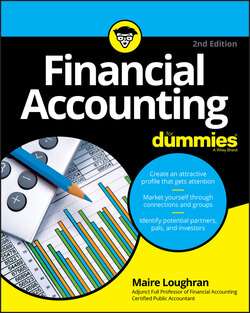Читать книгу Financial Accounting For Dummies - Maire Loughran - Страница 85
The Sarbanes-Oxley Act of 2002 (SOX)
ОглавлениеBeware, fraudulent companies: SOX may sound like a cuddly kitten, but it has claws! The bankruptcies of Enron Corporation and WorldCom, Inc. — and the subsequent billions of dollars of investor losses — prompted the U.S Congress to pass the Sarbanes-Oxley Act of 2002 (SOX) in an effort to renew investor confidence in the regulation of publicly traded companies. (SOX got its name because the legislation was sponsored by U.S. Senator Paul Sarbanes and U.S. Representative Michael G. Oxley.)
Abiding by SOX is mandatory for all publicly traded organizations regardless of size. SOX introduced major changes to the regulation of financial practice and corporate governance.
SOX does not apply to privately held companies; the Auditing Standards Board (ASB) regulates privately held companies.
SOX is organized into 11 titles or sections. You can read all about them at www.sec.gov/about/laws/soa2002.pdf, but here is just a quick rundown:
Public Company Accounting Oversight Board (PCAOB): SOX formed PCAOB, which I discuss in the next section of this chapter. PCAOB is the watchdog of the accounting and auditing professions.
Auditor independence: The legislation establishes standards for external auditor independence in order to limit conflicts of interest.
Corporate responsibility: SOX lays out the responsibility senior executives take for the accuracy and completeness of corporate financial reports.
Enhanced financial disclosures: This part of the legislation requires enhanced reporting for financial transactions so users can make better-informed decisions.
Analyst conflicts of interest: This section addresses the code of conduct for security analysts and requires the analysts to disclose any conflicts of interest.
Commission resources and authority: SOX defines the SEC’s authority to censure or bar security professionals from practice.
Studies and reports: The SEC is required to perform studies on topics such as security violations and enforcement actions and report its findings.
Corporate and criminal fraud accountability: This section addresses criminal penalties for “cooking the books” and any other manipulation of financial records.
White-collar crime penalty enhancements: This section beefs up criminal penalties that can be assessed for white-collar crimes, including management’s failure to certify corporate financial reports.
Corporate tax returns: This title states that the Chief Executive Officer should sign the company’s tax returns.
Corporate fraud and accountability: SOX identifies corporate fraud and altering financial records as criminal offenses.
